Frequently Asked Questions
Are the Tevie Miller Heritage School Program and the Tevie Miller Pre-K/Kindergarten Program considered inclusive education learning environments?
- Yes. Setting the Direction is a proposed Alberta Education framework that defines an inclusive education system as "a way of thinking and acting that demonstrates universal acceptance of, and belonging for, all students. Inclusive education in Alberta means a value-based approach to accepting responsibility for all students. It also means that all students will have equitable opportunity to be included in the typical learning environment or program of choice." We, at Tevie Miller Heritage School Program and Alberta School for the Deaf, are committed to meeting the needs of all of our Deaf, Hard of Hearing and hearing students in an inclusive learning environment with a common focus on excellence in communication, language and literacy. Our collaborative staff team celebrates diversity, capacity for learning, and takes responsibility for all of our students at our multi track school campus. Programming and related supports are in direct response to parent request/demand for our unique, one of a kind "program of choice."
What is the admission criteria for entrance to Tevie Miller Heritage School Program and Tevie Miller Early Education and Early Education/Kindergarten program?
Why are there fees for Speech and Language services at the Tevie Miller Heritage Program for students in Kindergarten to Grade 6?
- Alberta Education funds Speech and Language services through Program Unit Funding (PUF) for Pre-K/Kindergartern students. However, Speech and Language services for school aged students are an Alberta Health Services mandate and schools do not receive education dollars for this service. Please contact Tevie Miller Heritage School Society directly regarding fees for students in Grades 1 to 6.
What is a Speech-Language Pathologist?
- A Speech-Language Pathologist is a professional with expertise in assessment, diagnosis and intervention of communication and swallowing disorders. Speech-Language Pathologists work in a variety of settings including hospitals, rehabilitation centers, schools, early intervention programs, and private practice. They provide a wide range of services in the following areas:
-Speech delays and disorders (articulation, motor speech, phonology)
-Language delays and disorders (expression and comprehension of language)
-Fluency disorders (stuttering)
-Voice and resonance disorders
-Swallowing and feeding disorders (adults and pediatrics)
-Cognitive-communicative disorders (social communication skills, reasoning, problem solving)
-Preliteracy and literacy skills (phonological awareness, decoding, comprehension and writing)
-Augmentative communication
Adapted from: CASLPA; Scope of Language for Speech-Language Pathology
What is the role of the Speech-Language Pathologist at Tevie Miller Heritage School?
- At Tevie Miller Heritage School, the Speech-Language Pathologist is responsible for:
-assessing students' communication skills (i.e. language, articulation, oral motor, fluency, social communication, phonological awareness, hearing screening).
-making referrals to other professionals/programs for specialized services (i.e. audiologists, the ICAN Centre for Assistive Technology, Institute for Stuttering Treatment and Research).
-identifying goal areas for each student.
-monitoring student progress on goals.
-developing programs/intervention, in collaboration with the classroom teacher, to address these goals in curriculum based activities.
-providing a year-end report for each student summarizing treatment and assessment results.
How will my child receive Speech and Language services at Tevie Miller Heritage School?
- A collaborative class model is in place at Tevie Miller Heritage School. This means that the Speech-Language Pathologist works closely with the classroom Teacher, Educational Assistant and Speech-Language Pathologist Assistant to meet all students' needs. The Speech-Language Pathologists are typically very involved with the Language Arts program, helping students to develop their spoken and written language. Speech and Language activities are designed to support and augment classroom activities and curriculum material whenever possible. Speech-Language Pathologists also work with the classroom teachers to develop and adapt materials and teaching approaches that support students' language skills within the classroom. This means that the Speech-Language Pathologists may work with students in a variety of contexts:
-Whole-class instruction, either as the instructor or by team-teaching with the classroom teacher
-Small-group instruction, either within the classroom or in a pull-out room
-Individually within the classroom to support language skills and help with generalization of skills
-Individually in a pull-out session, when the student's goals cannot be adequately addressed in classroom or small group activities
How do Speech and Language disorders affect learning/school performance?
- Language (reading, writing, listening, speaking) is the basis for communication at Tevie Miller Heritage School. We learn by communicating with peers and adults in an educational setting. Therefore, Speech and Language skills are essential in order for a child to succeed at school. Children with communication disorders or delays in language development often struggle with reading, understanding and expressing language (both oral and written), and understanding appropriate social cues. Problems can occur in production, comprehension and awareness at all levels of language: sounds, syllables, words, sentences and conversation. Children with communication disorders and Speech and Language delays often do not perform at grade level, have difficulty taking tests, may get frustrated or even begin to avoid attending school. In other words, supporting Speech and Language development is fundamental to language learning, academic success and developing appropriate peer relationships.
Adapted from: American Speech-Language-Hearing Association; Frequently Asked Questions in a School Setting
